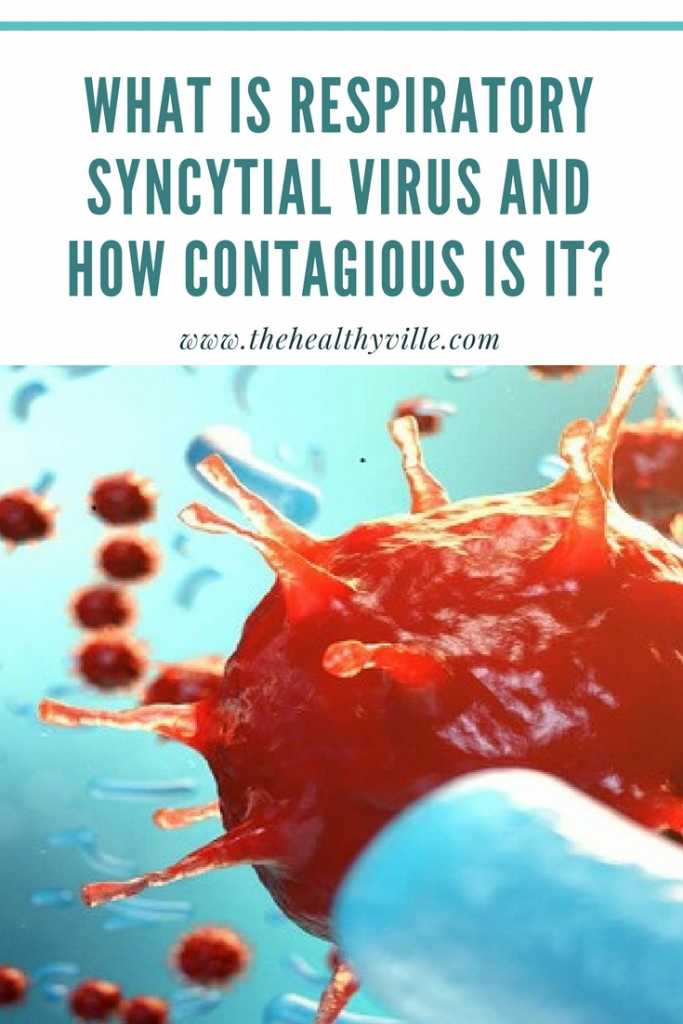Respiratory syncytial virus (RSV) is a highly contagious pathogen that causes infections in the lungs and airways.
The respiratory syncytial virus
The paramyxoviruses are highly contagious respiratory viruses and the RSV belongs to this group of viruses. It is easily spread through the nasopharyngeal secretions of an affected person.
The virus survives on surfaces, hands or clothes for several hours, which facilitates its transmission through coughing and sneezing.
The virus is able to damage the cells of the respiratory tract by penetrating them and adhering to them, something that they achieve thanks to fusion proteins present on the surface of the virus.
After penetrating the cells, respiratory syncytial virusis is capable of destroying the cell membranes, causing the formation of large masses of cell nuclei without membranes. This is what is known as syncytium, a term from which its own name derives.
Who does RSV affect?
In fact, RSV can affect people of all ages. The viral infection generates a mild symptomatology similar to that of a cold in adults. Unfortunately babies, elderly people or people with other types of pathologies added, can get different, more serious symptoms.
In fact, viruses that affect newborns, causing bronchiolitis and pneumonia are precisely these paramyxoviruses.
Symptoms
The symptoms vary depending on age and risk groups. In adults, the infection can be asymptomatic or cause symptoms similar to those of a cold, such as cough, nasal congestion or fever.
In individuals who belong to risk groups, such as immune-compromised persons or babies (especially those under 1 year old), the symptoms become worse, and there may be:
- Difficulty breathing
- Whistles in the chest
- Asthma
- Fever
In addition, in the most severe cases the infection affects the lower respiratory tract, causing bronchial inflammation (bronchiolitis), necrosis and pulmonary edema. This can happen mostly in babies affected by RSV and in extreme cases can cause death.
In children under one year, RSV infection is especially problematic; it is very common in this type of patients to produce serious infections in the respiratory tract. In addition, the clinical status of the baby may be aggravated if they have a family history of allergy.
The role of cromoglycate in asthmatic children
Although, fortunately, affected people usually recover from RSV infection without consequences, in cases of infections in nursing infants, suffering from bronchiolitis at this early age can make these children more susceptible to asthma attacks throughout their lives.
Treatment
Currently, there is no standardized and completely effective treatment for RSV. Its prevention through vaccines is not effective, because until now, vaccines only generate insufficient immunity and for a short time.
Usually, these treatments are recommended:
- Liquid administration
- Oxygen administration
- Aspiration of nasal secretions
In addition, doctors use ribavirin as treatment for respiratory syncytial virus infections in some cases. However, its effectiveness in these cases is controversial. This, together with its high cost and associated side effects has made many professionals discourage its use.
Further info: This Paranasal Sinus Disease Treatment Will Help You Combat The Disease In 5 Days!
Prevention
Since it is a highly contagious virus, some tips that can help prevent it are:
- Wash your hands frequently
- Avoid touching your face
- Cover your nose and mouth when coughing or sneezing
- Avoid contact with affected people
- Clean and disinfect surfaces
- Stay home if you are sick
Don’t forget to SHARE the info about respiratory syncytial virusis with your friends and family on your social networks!

